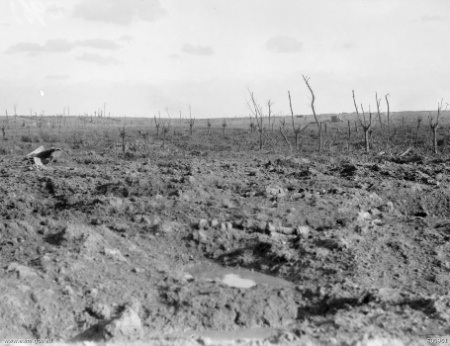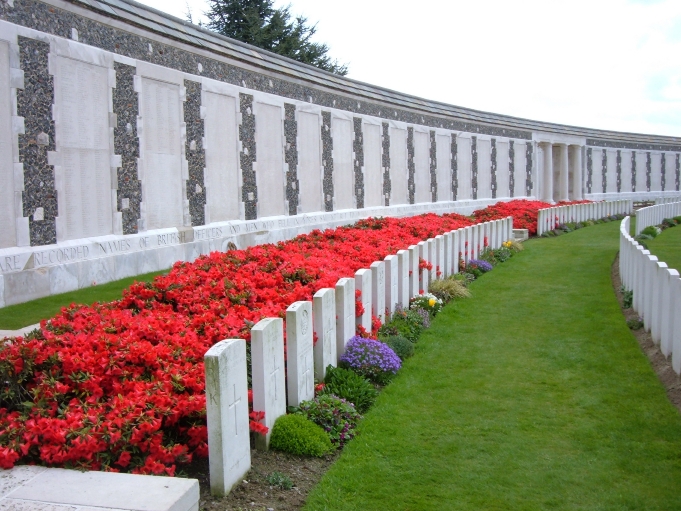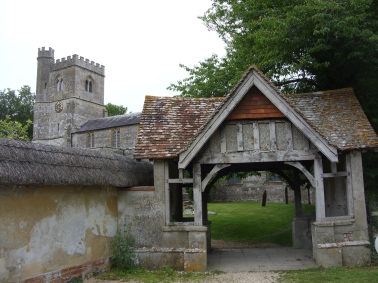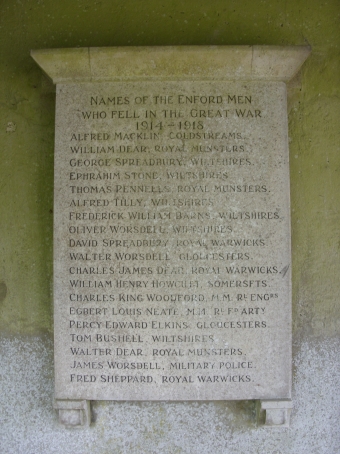|
William Henry Howcutt
(1896-1917)
|
||||||
|
William Henry Howcutt was the only
soldier with the Howcutt surname to lose his life in either of the World
Wars. He was one of the 4,756 soldiers from the Somerset Light Infantry who
died between 1914 and 1918. [1] William was born at Aldershot in
1896 and baptised at St Michael’s church on 26 April of that year. His
parents John Thomas & his wife Fanny Horwood were then living at West End
Cottage, West End, Aldershot and had two older children. [2] John Thomas was
working as a groom. By the 1901 census, William’s
father was a coachman and his mother was working at home as a dressmaker.
Since William arrived, the couple had produced a further two offspring. [3]
The family were living in a four-room house at 11 Church Street, Aldershot.
During the following four years, a further three children were born [4],
bringing the total number up to eight. All survived to adulthood. William is not listed in the 1911
census with his parents and siblings who by then had moved to a cottage, also
with four rooms, at New Town, Enford, Wiltshire. By that stage his father was
a groom and worked for the Army. It is not known where William was living at
that time. Both Aldershot and Salisbury Plain
had a strong military presence but this was mild compared to what awaited
William from 1914 onwards. He enlisted in the Army at Devizes and served as a
private in “C” Company, 8th battalion of the Somerset Light
Infantry [5]. He was killed on 4 October 1917, almost certainly at the Battle of
Broodseinde. [6] William’s grave was one of the
many that could not be identified after the War and he is commemorated on the
Tyne Cot Memorial. His name is also recorded on the memorial at the entrance
to the churchyard of Enford parish church.
The Commonwealth War Graves
Commission website includes a page with details for William
Henry Howcutt and an opportunity to download a free commemorative
certificate. The page is not entirely accurate as it says that William was 24
when he died; in fact, he was 21. After the War ended, a lychgate was built at the entrance to Enford churchyard
to commemorate the local men who had died. William Henry Howcutt is one of
the 19 names recorded there.
William was not the only member of
his family to fall in 1917. At some stage during the last three months of
that year, his sister Bertha Mary married Tom Reynold Craven. Tom’s parents
lived in Manchester but he had emigrated and held Canadian nationality. After
coming to England in 1914, he was a sergeant in the Canadian Engineers Unit,
1st Division, Signal company. He was
awarded the Military Medal but died on Christmas Day 1917. [7] Notes [1] Somerset Light
Infantry Archive – The Great War, 1914-1918. [2] Leonard
Joseph Mark (1892-1941) and Bertha Mary (1894-1957). [3] John Thomas
(1897-1972) and Frederick James Oliver (1899-1972). [4] Fanny
Elizabeth (1901-1978), Emilie Marie (1903-1967) and Frances Gwyn (1905-1987). [5] The 8th
battalion was formed in October 1914 and sent to the Western Front as part of
the 21st Division in September 1915. It was transferred to the 37th
Division in July 1916. [6] On the same
day, Thomas Henry Sage (1882-1945), who was also a private in the 8th
Battalion, won the Victoria Cross at Tower Hamlets Spur, east of Ypres. [7] Details of Tom
Reynold Craven appear on the Commonwealth War Graves Commission site. |
||||||
|
|
||||||
|
|



